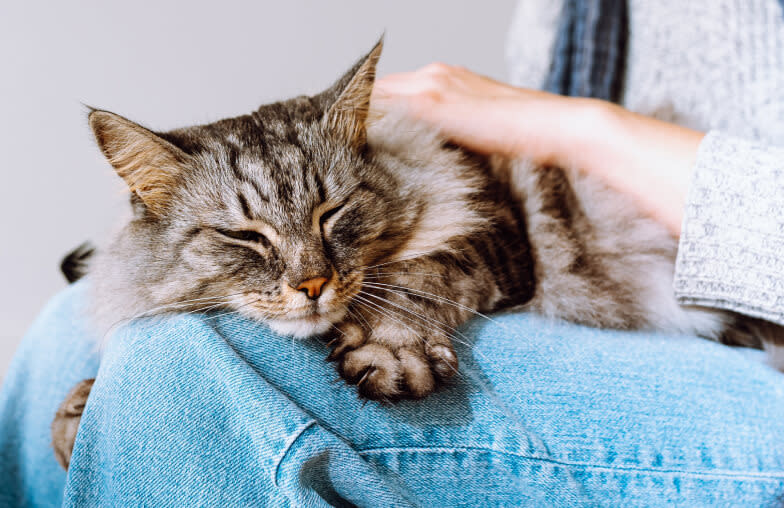Because of the huge role our pets play in our lives, losing a beloved pet leaves behind an absence that can be difficult to process.
The grief over losing a pet isn’t always as widely acknowledged or understood as other types of loss, which can make the grieving process feel isolating or invisible at times.
“Pets are beloved members of the family and commonly part of pet parents' everyday lives,” says Dr. Lara Schultz, a psychologist who focuses on helping people deal with loss and grieving.
“The bond that is formed with pet parents is really unique, profound and meaningful. It's really important to understand that grief in response to the loss or the anticipated loss of a pet is natural, and it's to be expected.”
Recognizing the degree of loss that you’ve experienced and allowing yourself to feel and process that loss not only honours the life that you and your pet shared, but also supports you on a path towards healing the pain that accompanies your grief. There is no shame in grieving the death of a pet. The loss is real and your grief is justified.
Give yourself the time and space to grieve
“Everyone deals with grief differently,” says Dr. Stephanie Black, Chief Veterinary Officer with the Ontario SPCA. “We have to consider that it is a very individual journey. We're all going to manage it differently, but keep in mind, you're not alone. There's lots of people that can help you through this and lots of people that have been there as well.”
Grief can also vary across time and according to each individual loss. The same person won’t always grieve in the same way. Your grief can surprise you in terms of where and when it manifests.
“Grief often comes in waves,” says Schultz, “and the waves typically become less big and frequent over time, especially if you allow yourself to experience and express your grief responses. You may experience a term called ‘grief bursts’—a big wave of grief that comes as pet parents encounter reminders of the pet and the pet's absence. This could include things like coming home to an empty house, seeing other people with their pets, or coming across activities or places that were meaningful to you and your pet.”
When this happens, Dr. Schultz recommends acknowledging and naming the grief you’re experiencing. “Just say to yourself, ‘Okay, this is a burst of grief and it's okay, it's natural.’ Allow the wave to wash through you or share it with somebody that you trust.”
Seek comfort through rituals and remembrance
Mourning rituals were created to help people who have experienced a loss deal with their grief, find acceptance and closure, and move forward. These traditions exist to support the grieving process and can help you deal with the loss of a pet.
“Rituals like a funeral are completely okay and acceptable,” says Schultz. “A farewell ceremony can help you and those who loved your pet to share grief and receive support. If you prefer a more private experience [another option is] writing a letter to your pet that you can keep or it can be buried with your pet.”
Schultz says that many pet parents like to remember their pet by creating a memorial. “That can be anything that's meaningful to the person,” she explains. “An inscribed plaque, a photo, and a candle is quite traditional, or holding onto a keepsake such as a pet's collar or toy.”
Schultz also suggests creating a photo album or scrapbook that celebrates the experiences you shared with your pet. Pet parents can write down their favourite memories about their pet and ask others close to them to share theirs as well.
“One of my favourite processes,” she adds, “is to record what you learned from your pet. What did your pet teach you about life? And what are the imprints that they have left on your heart.”











































